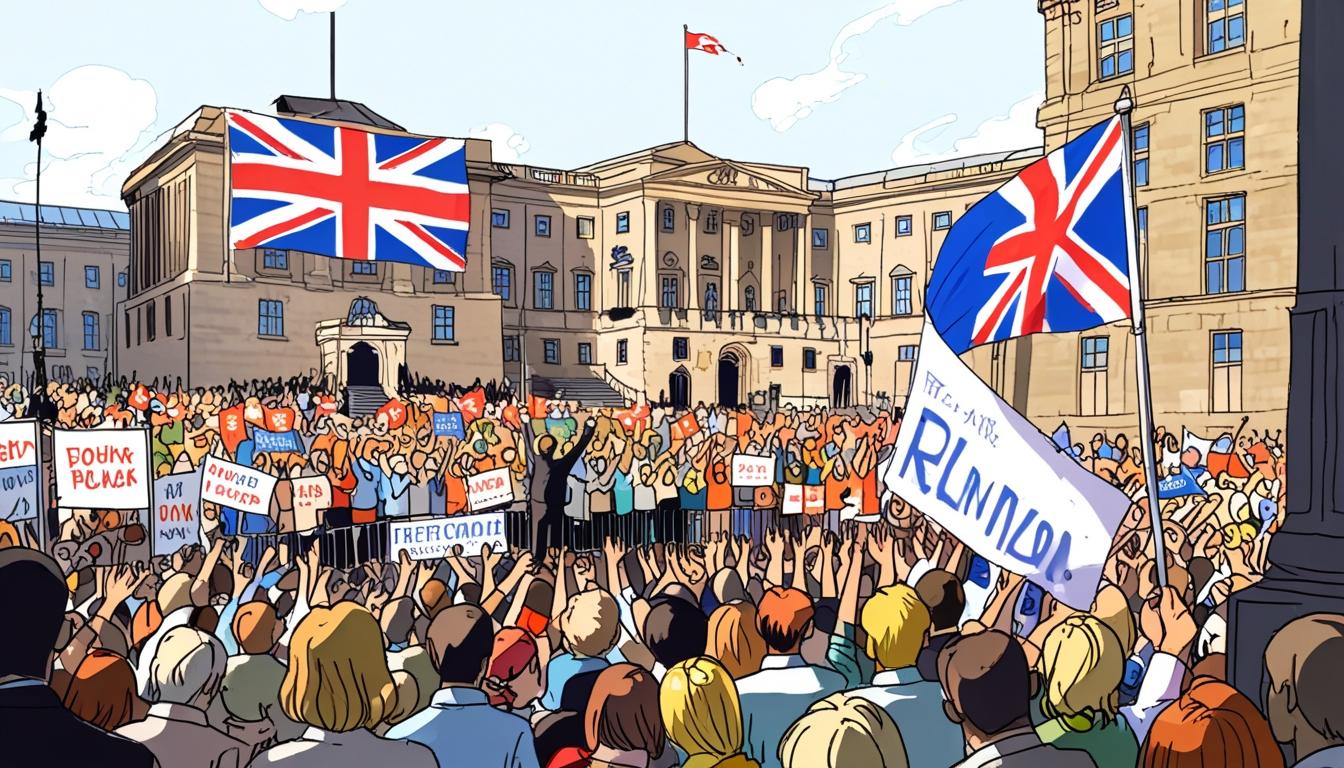The Rise of a New Order: The Shift Towards Reform UK
In a striking demonstration of shifting political allegiances, recent polling has revealed a notable surge in support for a certain right-leaning party, which has gained significant traction since the UK general election earlier this year. According to findings from a national survey conducted by Find Out Now, this party's support has climbed to 33%, overtaking the Labour Party at a mere 20% and leaving the Conservatives in a weakened position at just 16%. These figures indicate a potential shake-up in British politics, suggesting that the party could be poised for a breakthrough in future elections.
The implications of these results are alarming for Labour and the Conservatives. Should this polling translate into actual votes, projections indicate that the party could secure an astounding 365 seats in the House of Commons—replicating Boris Johnson’s majority in 2019—while Labour could find themselves with as few as 97 seats. The Conservatives, meanwhile, would face a catastrophic decline, potentially relegated to the sixth largest party in Parliament with just 23 seats. These dramatic shifts reflect a pervasive voter dissatisfaction with the traditional political status quo.
Recent electoral gains by this rising party, particularly in the Runcorn and Helsby by-election where they captured the seat by a slim margin following a scandal that brought down a Labour MP, are evidence of this growing discontent. Additionally, they have made notable inroads in Conservative strongholds, ballooning their local election victories to over 600 council seats and securing their first mayoralty in Greater Lincolnshire. These wins underscore a broader trend: voters are increasingly disillusioned with both Labour and the Conservatives amid economic stagnation and ineffectiveness from those in power.
The deputy leader of this party confidently proclaimed their polling success, emphasizing that they are now "17% ahead of disappearing Tories." Their leader has expressed a strong belief that these electoral trends signal the potential end of Britain’s two-party system, indicating a promising future for the party as they position themselves as a definite opposition to the incoming Labour government.
As Labour grapples with rising internal criticisms regarding centrist policies, their new Prime Minister has described the results of the Runcorn by-election as "disappointing." With public sentiments growing increasingly restless over healthcare and welfare issues, Starmer faces mounting pressure to shift Labour’s messaging and reconnect with its constituents. Analysts warn that without a robust economic recovery plan and meaningful engagement with voters, Labour risks losing even more support to this newly invigorated political force.
The Conservative leadership under Kemi Badenoch also faces a critical crossroads. Accusations of disconnecting from core voters have surfaced, leading to significant losses in local elections. Badenoch has acknowledged prevalent voter distrust, rendering it essential for her party to rebuild confidence among its traditional base.
This shifting political climate is indicative of a more fragmented electoral landscape, with the potential rise of other parties complicating matters for both Labour and Conservative factions. Polling indicates that voter loyalties are straying from traditional affiliations, heightening the challenges facing both established parties.
In summary, the ascent of this right-leaning party has not only captured a substantial share of public sentiment but has also spurred a critical conversation about the viability and relevance of the UK’s traditional political institutions. As elections approach, Labour and the Conservatives must confront this resurgent political force that has firmly established itself as a formidable player, signifying a pivotal moment that could redefine the country's political narrative for years to come.
Source: Noah Wire Services
